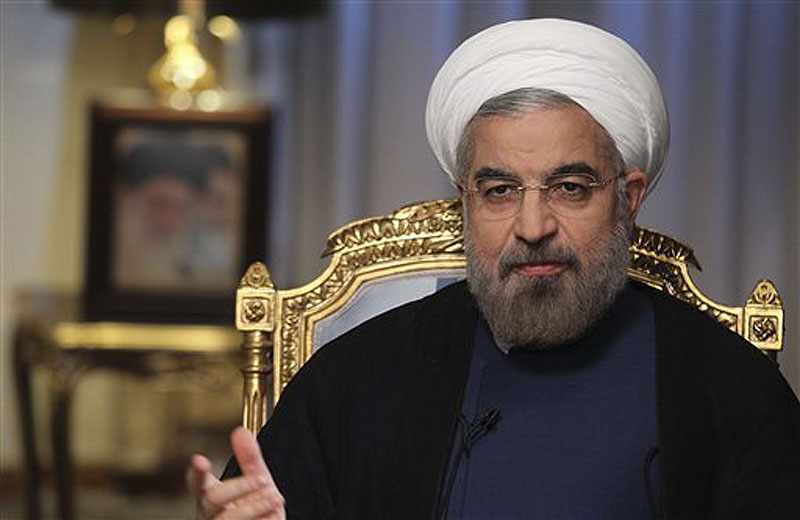WASHINGTON – Iran and the United States are making plenty of friendly gestures, but real progress is going to be harder. A notable first meeting between the two nations’ presidents suddenly seems possible next week, but without nuclear concessions the U.S. is unlikely to give Tehran what it wants: an easing of punishing sanctions that have resulted in soaring inflation and unemployment.
President Obama and Iran’s new president, Hasan Rouhani, both will be in New York next week for the United Nations General Assembly. And a recent flurry of goodwill gestures has raised the prospect that they will meet face to face.
Pleasantries aside, however, the U.S. and other world powers are seeking reductions in Iran’s uranium enrichment, real-time monitoring of its nuclear facilities and scaled-back production at its underground Fordo facility. Not likely, Iran experts say. At least not yet.
“I’m a bit skeptical that we’ll see those kinds of concessions this early in the game,” said Gary Samore, who until earlier this year was Obama’s top arms control adviser.
The Obama administration has welcomed the election of Rouhani, a moderate cleric who achieved a stunning victory in Iran’s June presidential elections. And upbeat signals have suggested there could be talks between Obama and Rouhani on the U.N. sidelines.
But U.S. officials are still skeptical of whether Rouhani’s more palatable rhetoric will be followed by actual shifts in Iran’s long-standing refusal to curb its nuclear program. The U.S. and its allies suspect Iran is trying to produce a nuclear weapon, though Tehran insists its nuclear activities are only for producing energy and for medical research.
Obama has been testing the waters through an exchange of letters with his Iranian counterpart. U.S. officials say Obama used his correspondence to convey urgency in resolving the nuclear dispute through diplomacy before that option is cut off. Rouhani, in an interview with NBC News, said he thanked Obama for his outreach and “expressed Iran’s viewpoint on the issues raised in his letter and some other issues.”
Rouhani has made other overtures that have grabbed the Obama administration’s attention. He included Iran’s only Jewish lawmaker in his delegation to the United Nations meeting. And the Iranian government this week released a dozen prominent political prisoners, including a human rights lawyer who defended opposition activists and was imprisoned for three years.
White House officials said Friday that no meetings between Obama and Rouhani are currently scheduled, but they left open the prospect of a direct exchange.
An face-to-face meeting between Obama and Rouhani would mark a significant step in the U.S.-Iranian relationship. But the real work on the nuclear issue would come either from direct negotiations between U.S. and Iranian officials or renewed talks between Iran and six world powers — the U.S., Russia, China, Britain, France and Germany.
Those negotiations have stalled largely because of disagreements over Iran’s right to enrich uranium. Iran wants the international community to acknowledge its right to enrich under the Non-Proliferation Treaty, but the six nations have shied from doing so.
Send questions/comments to the editors.



Success. Please wait for the page to reload. If the page does not reload within 5 seconds, please refresh the page.
Enter your email and password to access comments.
Hi, to comment on stories you must . This profile is in addition to your subscription and website login.
Already have a commenting profile? .
Invalid username/password.
Please check your email to confirm and complete your registration.
Only subscribers are eligible to post comments. Please subscribe or login first for digital access. Here’s why.
Use the form below to reset your password. When you've submitted your account email, we will send an email with a reset code.